

Tao Te Ching
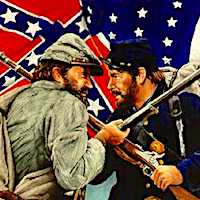
American Civil War (1861 – 1865 CE)
One of the most suffering-filled eras of American history which seduced brothers to fight against brothers, fathers against sons, and created a simmering layer of cultural hatred just below the surface that still continues.
Sages (94)
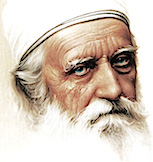
Abdu’l-Bahá' ' عبد البهاء
1844 – 1921 CE
Left in poverty and exile at 8 years old when his father, Bahá'u'lláh (founder of the Bahá'í faith), was imprisoned and all his family’s possessions looted; Abdul Baha grew up in a Palestinian prison colony and after 40 years of imprisonment at age 64 was released giving him the opportunity to more effectively spread these teachings of social service, racial and gender equality, environmental protection and a universal unification of religion, politics, science and government. He was knighted by the British government for his humanitarian work during WWI and today Bahá'í has grown to over 8 million followers, become the world’s fastest growing religion during the last 100 years, the second-most geographically widespread religion after Christianity growing at least twice as fast as the population of almost every UN region.
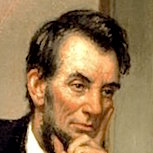
Abraham Lincoln
1809 – 1865 CE
Greatest American president, iconclast, skeptic, self-educated lawyer and congressman opposed to the Mexican–American War whose opposition to the expansion of slavery caused 7 slave states to form the Confederacy when he was elected president; Lincoln skillfully maneuvered between “War and Anti-War Democrats” who wanted to compromise with the South, “Radical Republicans” who wanted to harshly punish the South, fixated secessionists, and British interventionists. His oratory and common sense helped guide the USA through its biggest political and moral crisis while abolishing slavery, preserving the Union, and modernizing the economy. Using the army to protect escaped slaves, he closely supervised the war and planned a compassionate rebuilding of the South until his assassination.
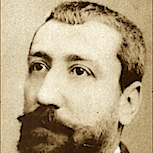
Anatole France (Jacques Anatole Thibault)
1844 – 1924 CE
Son of a bookseller and true bibliophile, librarian for the French Senate, and modern lineage holder of Epicurean thought; Anatole France was venomously attacked by Nazi collaborators but defended and admired by George Orwell. His entire set of writings were banned and prohibited by the Roman Catholic Church but in 1921 awarded the Nobel Prize in Literature "in recognition of his brilliant literary achievements, characterized as they are by a nobility of style, a profound human sympathy, and grace.” Journalist, poet, social commentator, historian, playwright, and famous novelist; he became the model for a narrator in Proust's In Search of Lost Time.
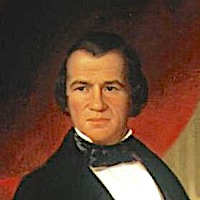
Andrew Johnson
1808 – 1875 CE
The first impeached and one of the most egregious of the white supremacist US presidents
First US president impeached in trials that became the country's biggest entertainment focus with color-coded, prized tickets going to the likes of Walt Whitman and Anthony Trollope; Andrew Johnson—who never attended school—openly embraced white supremacy, defied Congress and the Constitution, tried to assume king-like powers, turned the attorney general into his spin doctor, and obstructed justice in every direction. Claiming the US as a "country for white men," he vetoed the Civil Rights bill, gave amnesty to more than 7000 Confederate war criminals, and yelled speeches advocating for the execution of his political opponents, and helped create much of the South's post-war problems.
Born in poverty and uneducated, he attempted to reestablish slavery with a different name by encouraging laws like the "black codes," laws that made it illegal for former slaves to rent or buy land, and stealing land given to former slaves which was then given to the former plantation owners.
After Mark Twain called Congress "damned cowards" for not impeaching him, the House voted 126 to 47 for impeachment but it failed in the Senate by one vote, the vote of Edmund Ross who was believed to have been bribed but became one of Kennedy's "Profiles in Courage."
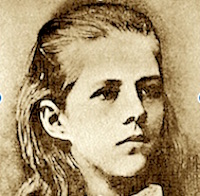
Anna Grigoryevna Dostoyevskaya ригорьевна Достоевская
1846 – 1918 CE
The woman behind the man and clear example of “better half,” Dostoyevskaya started helping Dostoyevsky as a 19-year old secretary when he was 44 and soon became not only his devoted and energetic wife; but also, his very capable business partner who helped him through extreme poverty, illness, and gambling addiction that at one point lost not all their money but her clothing as well. Not remembered very well by history but essential to Dostoyevsky’s success, she took charge of all their financial issues, publishing and business affairs, made him Russia’s first self-publish author liberating him from a lifetime of poverty and debt. To disprove one of his disparaging remarks about women, she became one of the first female Russian philatelists and worked on her collection for over 50 years while she wrote two biographies; saved his manuscripts, letters, and photographs; and set up a display of them in a State Historical Museum.
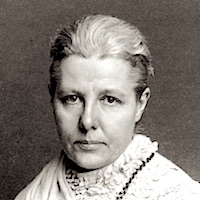
Annie Besant
1847 – 1933 CE
Leader of the theosophy movement after Helena Blavatsky died, political and women’s rights activist, persuasive speaker giving up to 60 public lectures a year; Annie Besant had a direct and deep influence on major 20th century political and religious changes. Friend and supporter of George Bernard Shaw and his socialist agenda, she championed causes from birth control to workers’ rights. She campaigned for Indian independence, became president of the Indian National Congress, and supported her friends Mohandas K. Gandhi and Jawaharlal Nehru. Discoverer, step-mother, and promoter of Jiddu Krishnamurti; she began by educating him into the theosophist role of "World Teacher,” remained close even after he rejected this direction, and attempted following his teachings of rejecting the superstitious and spiritually materialistic aspects of theosophy.
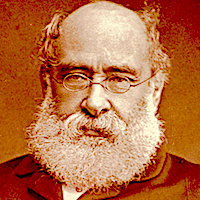
Anthony Trollope
1815 – 1882 CE
Novelist as teacher
Victorian novelist, political aspirant, writer of 47 novels and many short stories; Trollope focused his popular stories on everyday, householder events—situations average people could identify with and learn from. He understood and vividly described the role of money and materialism in the daily business of common people, officials, and institutions. They examined the time’s social, political, and cultural issues like the unfortunate role of women in Victorian society. His influence spread through his fans—people like Prime Ministers Harold Macmillan, Sir John Major, and John A. Macdonald; John Kenneth Galbraith, W. H. Auden, George Elliot, Sue Grafton, Edward Fitzgerald, and David Mamet. Alec Guinness liked his books so much, he never traveled without one and Siegmund Warburg said "reading Anthony Trollope surpasses a university education.”
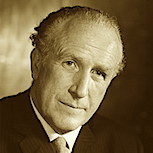
Arthur Desmond
1859 – 1929 CE
Arthur Desmond (c. 1859 – 1929), aka Arthur Uing, Ragnar Redbeard, Richard Thurland, Desmond Dilg, Gavin Gowrie
Bank-bashing heroic reformer, “The Poet of Revolution,” author, and politician; Desmond started a political organization dedicated to “emancipation from poverty, competitive commercialism, industrial wage slavery, tyrannical authority, and mental bondage." Like Machiavelli and his satirical book The Prince, Desmond was slandered by the rich and powerful plutocrats of his time as an immoral, satanic figure, advocating Social Darwinism, racism, and fascism. His book, Might Is Right, however, was called by fellow labor movement collaborators, “one of the greatest books ever written." He promoted land reform, the nationalization of large estates and banks, single taxation and called bank directors "scoundrels", large estate owners "blood-sucking leeches" and the local press as "hirelings of monopoly.”
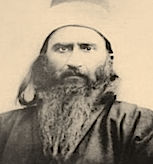
Bahá'u'lláh بهاء الله, ("Glory of God")
1817 – 1892 CE
Founder of the Bahá'í Faith, persecuted, tortured, exiled and imprisoned for 40 years, considered a manifestation like Moses, the Buddha, Jesus and Muhammad; Bahá'u'lláh continued and expanded a tradition that had broken from Islam and started a new religion based on a Shambhala-like myth of a hidden good rising up in the future to overcome corruption and evil to establish a great golden age. He taught the unity of all mankind, all genuine religions, the equality of men and women, the compatibility of science and religion and that it is time now to create a global society with universal education, a bill of rights, respect for diversity, a democratically elected world government and collective security based on justice and equality with a world police force, language and currency.
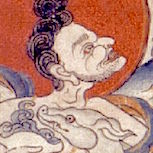
Bhikṣanapa བྷི་ཀྵ་ན་པ། ("Siddha Two-Teeth")
940 CE –
Mahasiddha #61
Bhikshanapa བྷི་ཀྵ་ན་པ། “Siddha Two-Teeth” (10th century CE)
Low caste and very poor, Bhikshanapa unexpectedly inherited some wealth. Like most people today winning a lottery or inheriting unaccustomed riches, he quickly lost it all along with his fair-weather friends. This led to a period of intense self-loathing and depression but also an openness to meeting and hearing a teacher and new way of experiencing the world. Seeing through his consumerism andspiritual materialism, he metaphorically (and possibly physically too), lost all but two of his teeth which became symbols for the balance and harmony of wisdom and skillful means. Resuming his external life style of roaming from village to village, he transformed from a miserable, needy beggar only thinking about himself into a wonderful teacher constantly dedicated to helping others. Mahasiddha #61
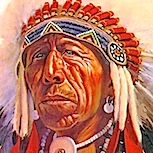
Black Elk (Heȟáka Sápa)
1863 – 1950 CE
Holy Sioux Medicine Man, Heyoka (sacred clown), wounded warrior, seer of wisdom-visions; Black Elk was spiritual but pragmatic - he became Catholic because “My children had to live in this world,” but later told his daughter, “The only thing I really believe is the pipe religion.” He went to England with Buffalo Bill's Wild West show in 1887, got lost, and traveled through Germany, France, and Italy where he saw that “The Holy Land is everywhere,” and returned with insight that inspired both the American Indian Movement and some of the best elements within European-American culture: civil rights, organic farming, renewable energy, sustainable living, and the environmental movement.
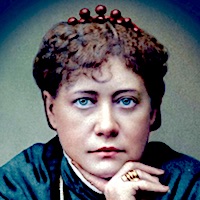
Blavatsky, Helena Еле́на Петро́вна Блава́тская
1831 – 1891 CE
Co-founder of Theosophy
Mystic, medium, philosopher, co-founder of Theosophy; Blavatsky traveled widely and claimed to meet many “Masters of the Ancient Wisdom.” She studied and practiced in Tibetan monasteries, became one of the first Westerners to ever become a Buddhist, worked closely with Hindu reform movements, and criticized the spiritual materialism of the spiritualist traditions she became linked with. She worked hard to bridge religion to and with philosophy and science but the scientific community characterized her as “one of the most accomplished, ingenious, and interesting imposters in history.” She wrote about ancient giants she believed made Stonehenge, the history of Atlantis, and many tenants of esoteric spiritualism. Her efforts became a major influence on the spread of Hinduism and Buddhism in the West as well as on Rudolf Steiner’s Anthroposophy and the New Age Movement.
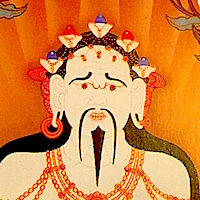
Campaka ཙ་མྤ་ཀ (“The Flower King”)
820 CE –
Mahasiddha #60
Extremely wealthy, powerful, caught up in pleasure, and sitting on a throne made from sweet-smelling flowers; Kampala met a wandering yogi. He tried to impress the sage with the splendors of his kingdom and the beauty of his flowers but the sage told him the truth, that his flowers smelled great but his body not so much, that his realm was wonderful but before long it and he would be gone. Realizing the superficiality and meaninglessness of his life, Kampala began a spiritual path but only shifted his physical materialism into spiritual materialism. Directed to focus his meditation on “the flower of pure reality,” he practiced and finally realized the empty essence of his mind. Mahasiddha #60
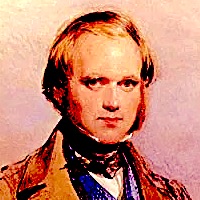
Charles Darwin
1809 – 1882 CE
Revolutionary scientist, one of the most influential characters in human history, and originator of the theory of evolution and natural selection; Charles Darwin generated a scientific consensus that recast humanity’s understanding of itself. Following his father’s decisions, he became a failure in his early academic efforts, a failure in his studies to become a doctor, and a failure in his career as a clergyman because of his intense interesting in beetles and entomology. He traveled to remote islands studying coral reefs, barnacles, animals, fish, insects of all kind and was “struck with the variability of every part in some slight degree of every species.” Unlike Thoreau’s book Walden that didn’t sell enough copies to cover the paper cost, Darwin’s book, The Origin of Species sold out on the first day in print launching a debate that soon led to a dual between scientists and became a controversy that continues today. He studied earthworms for 40+ years and this became the topic of his last book which he wanted to write quickly "before joining them.”
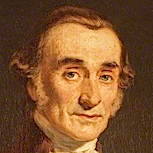
Charles Mackay
1814 – 1889 CE
English journalist in the US covering the civil war, Scottish poet, songwriter and novelist; Mackay used Gracian’s insight that “all fools are fully convinced” as a foundation for much of his writings. He described the Middle Ages mania called the Crusades, the 17th century Dutch tulip phenomenon as one of many economic/financial bubble manias, 16th- and 17th-century witch trials when thousands of people were executed as witches, and other national and philosophical delusions. A strong proponent and eloquent “apostle of doubt,” he wasn’t taken seriously during his lifetime but is still a big influence today referenced by stock traders, Forbes magazine, BusinessWeek, Neil Gaiman, Financial writer Michael Lewis, and many others.
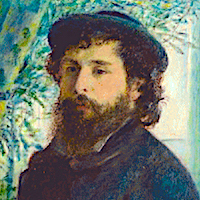
Claude Monet
1840 – 1926 CE
"the driving force behind Impressionism"
A founder, instigator, and vivid example of Impressionist painting; Monet brought Boudin's dictum of preserving "one's first impression" to artistic near-perfection. It was only shortly after his birth that the discovery of metal-tubed pigments made painting outdoors practical. This new technology opened up an expansive world of light variation and Monet—like ancient explorers of uncharted new lands—launched exploratory journeys into these new visual countries. He frequently painted many times the same scene under differing light conditions.
Beginning his commercial artistic career at only 15 selling popular caricatures, this initial success disqualified Monet from the acclaimed art schools and sent him on a road of his own including years on the move avoiding creditors and seeking a home and place to paint. Unlike the majority of pioneering artists, however, he was recognized during his lifetime and died both prosperous and famous. During the last half of his life, he traveled less and less while cultivating the gardens of Giverny which—like his paintings—included bright patches of color in a messy but balanced whole.
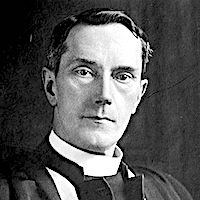
Dean Inge
1860 – 1954 CE
Christian mystic and philosopher
Although a prolific writer of 35+ books and nominated 3 times for the Nobel Prize in Literature, Inge isn’t a very well known historical figure. His insight, however, was deep and his influence on modern—at least Christian—culture profound. Author, priest, professor of divinity, passionate animal rights supporter, and Dean of St Paul's Cathedral; he criticized the Roman Catholic Church, disapproved of democracy, promoted nudity and eugenics. A serious, preaching Christian but on the mystical side, he advocated the philosophy of Plotinus and a kind of autonomous religion based on personal experience rather than external authority.
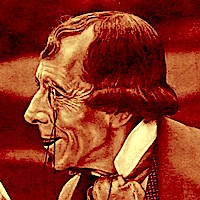
Disraeli, Benjamin (Earl of Beaconsfield )
1804 – 1881 CE
Political balance between mob rule and tyranny
Highly accomplished two-time UK Prime Minister (and only one ever born Jewish), active novelist, poet, close friend of Queen Victoria, and one of the most influential European statesman; Disraeli led a complex and difficult to categorize life. Many saw him as an eloquent charlatan; many as a strong, capable, and patriotic leader. Countering the status quo attitude toward Jews as being inferior, he redefined Judaism as race rather than religion and described Jews as superior in talent and influence. This ironically, may have led to the later fear and resentment toward Jews that culminated in programs and concentration camps. A founder of the modern Conservative party, he brought an isolationist Britain into collaboration with Europe. After the failed Indian Mutiny of 1857 (caused by pig and cow greased bullets) and the annexation of India to Britain, he proclaimed Queen Victoria “Empress of India.” Although he promoted a kind of paternalistic monarchy and imperialism, his voice remains relevant in the ever-challenging balance between overly democratic mob rule on one side and autocratic tyranny on the other.
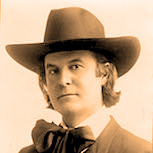
Elbert Hubbard
1856 – 1915 CE
Traveling soap company salesman who invented the “leave on trial” technique, philosopher, artist, trouble-maker and writer; Hubbard identified with the Thoreau, Whitman, Tolstoy lineage and distilled this philosophy in his famous essay, A Message to Garcia. Often mocked for "selling out,” convicted for circulating "obscene" material but pardoned by Woodrow Wilson; he seemed to live his famous adage, “When life gives you lemons, make lemonade.” He blended philosophy and business, idealism and practicality stretching into the wisdom beyond words. Survivor of the Titanic sinking, he died along with his wife in stoic acceptance on a different ship sunk by a German submarine.
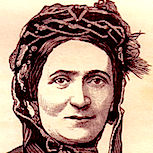
Ellen Craft
1826 – 1891 CE
A slave secretly married to a slave with a different master and fearing their forced separation, Ellen (at least ¾ European) cut her hair short and disguised herself as a white man traveling with his servant who was really her husband. The elaborate disguise included facial bandages and a sling so she wouldn’t have to sign papers since she couldn’t read or write. She had to act a different gender, race, and social class. After many days traveling by train and steamer they arrived safely in the north and then - fearing slave hunters - went on to England where they wrote a popular account that became an important influence for abolition. After the war, they returned to Georgia and started an agricultural school.
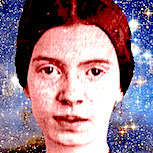
Emily Dickinson
1830 – 1886 CE
Though now considered one of the greatest figures in American literature and one of the most important poets, only a few of Dickson’s poems were published during her lifetime and those were significantly edited and changed by publishers. Her first collection wasn’t printed until years after her death and a complete collection wasn’t published until 1955. A serious student of botany, she made and maintained a vast collection of plants; highly introverted, creative, unique, and challenging the assumptions of her time; she seldom left her house but wrote 40 volumes of almost 1800 poems.
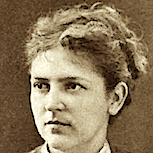
Fanny Osbourne Stevenson
1840 – 1914 CE
The inspiration and strength behind Robert Louis Stevenson, we can thank Fanny for such literary treasures as Kidnapped, Strange Case of Dr. Jekyll and Mr. Hyde, The Black Arrow, and Treasure Island. Following her first husband to the silver mines of Nevada traveling by wagon and stage-coach, she lived in a rugged mining camp shooting a pistol and rolling her own cigarettes. After leaving her gold and prostitute-chasing husband, she met a struggling Robert Louis Stevenson in Paris, saw his writing genius and began a fierce love affair that inspired, encouraged, and supported him. This provided a strong platform on which he built some of the world’s most endearing characters and stories. In her later life she was described as "the only woman in the world worth dying for."

Florence Nightingale
1820 – 1910 CE
The founder of modern nursing, she started the first secular nursing school in the world, emphasized preventive medicine and holistic health, improved healthcare for all classes as well as hunger relief in India. She helped abolish harsh prostitution laws and expanded acceptable roles for women. A strong Christian, she was critical of organized religion, appreciated pagan and eastern religions, and strongly opposed discrimination of all kinds. She inspired worldwide health care reform and her work improved the situation for women everywhere. Her influence remains strong and the Florence Nightingale Declaration has been signed by over 18,500 nurses from 86 countries.
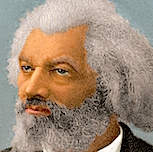
Frederick Douglass
1818 – 1895 CE
International symbol of social justice
Escaped slave, most influential 19th century black leader, adviser to Abraham Lincoln, champion of the working class, author, orator, and newspaper editor; Douglass eloquently agitated for the abolition of slavery, racism and capital punishment; for women’s rights, free public education, and land reform. Calling racism a “diseased imagination,” he convinced Lincoln to let blacks fight in the Civil War and helped enlist troops. Internationally famous, author of an American classic autobiography, a father of liberation theology, and the first African American in many political positions; his memory symbolizes and inspires the spirit of people everywhere to resist oppression and work for social justice.
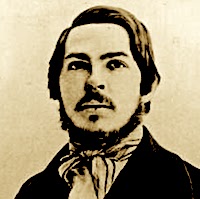
Friedrich Engels
1820 – 1895 CE
Businessman-philosopher, political theorist
Co-author of The Communist Manifesto, polyglot speaking 9 languages, businessman, poet, journalist, philosopher; Engels grew up in a wealthy family that owned and operated large factories. He saw the horrible, slave-like working conditions, long hours, environmental degradations, and child labor from a very clear, first-hand perspective. He financially supported Karl Marx, edited his writings, and wrote influential books of his own. Together they organized workers, envisioned egalitarian societies, and developed communist theory. In spite of his dedicated, political activism, in order to finance Marx’s work, he reengages in many successful business ventures. Risking imprisonment, hiding from police, and participating in armed rebellions; his efforts to create a more equitable world went far beyond theory and speculation. Although claimed as inspirational founder of Stalin’s Soviet Union, his emphasis on individuality and the appreciation of literature, music and culture set his true philosophy in direct odds against Stalin. While most of the credit for Marxist theory went to Marx, Engels—behind the scenes editing, filling in gaps, and amplifying—may have had a more important influence. He lived with the fierce, Irish radical Mary Burns for over 20 years until her death; but, because they both considered state and church-controlled marriage a form of oppression, never married.
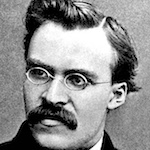
Friedrich Nietzsche
1844 – 1900 CE
Philosopher, scholar, poet, unifier of opposites and courageous critic of Western Civilization, Nietzsche proclaimed that “God is Dead,” that Christianity is “one great curse, one great intrinsic depravity,” and then started a “campaign against morality.” With a deep appreciation for Buddhism and rejecting external authorities like a “God” or a Church, he extolled the ability for people to discover their own morality grounded in reality rather than following herd-based ethics and beliefs. With a dedication to the sense over the words, people as diverse as D. H. Lawrence, Mishima, Rilke, Jack London, Hermann Hesse, Martin Heidegger, Carl Jung and many others described him as a most important influence on themselves personally as well on as society and the evolution of consciousness.
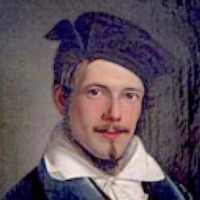
Friedrich Viktor Strauß
1809 – 1899 CE
First German Tao Te Ching translator
Theologian, poet, minister, translator, and scholar; Strauß published the first German Tao Te Ching translation in 1880. He also translated Chinese classic poetry, wrote novellas and gypsy romance. Sill popular today, his Tao Te Ching translation's 11th edition was published in 2004. His translation of the Shijing (Book of Songs) in 1880 became the first German translation. An ambassador and minister, he also translated his insight and understanding of Chinese wisdom into Western culture. Some of his hymns are still sung in churches and for weddings.
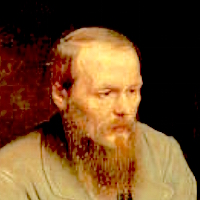
Fyodor Mikhailovich Dostoyevsky Фёдор Миха́йлович Достое́вский
1821 – 1881 CE
One of history’s most influential novelists and one of the greatest psychologists in world literature; Dostoyevsky led a tortured life that included being arrested for discussing banned books, being sentenced to death, spending 4 years in a Siberian prison camp, 6 years of forced/exiled military service, and struggling with a gambling addiction that made him have to beg for money. His second wife who he met when she was 19 and he 25 years older, helped turn his life around and produce some of the world’s best literature. His books have been translated into more than 170 languages and he was admired by Hermann Hesse, Ernest Hemingway, James Joyce, Kafka and Sartre. Albert Einstein called him a "great religious writer,” Nietzsche “among the most beautiful strokes of fortune in my life", Sigmund Freud called The Brothers Karamazov "the most magnificent novel ever written,“ and Virginia Woolf said, "Out of Shakespeare there is no more exciting reading.” His influence in modern time extends to the existentialists, surrealists, and the Beat generation.
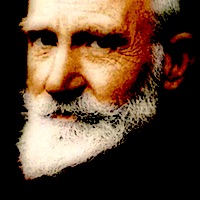
George Bernard Shaw
1856 – 1950 CE
UK playwright second only to Shakespeare
Playwright second only to Shakespeare, political activist, provocative idea generator, theatre and music critic; Shaw wrote over 60 plays, won a Nobel Prize in Literature, and an Academy Award. He promoted, popularized, and evolved the ideas of luminaries like Nietzsche, Samuel Butler, Marx, Shelley, Blake, and Dickens while using his plays to advocate for political and religious ideals as well as many controversial topics like promoting eugenics, opposing organized religion and vaccinations, criticizing both sides during World War I, and expressing esteem for dictators like Mussolini and Stalin. An insatiable originator, he frequently and intentionally proposed contradictory views, controversial political stands, and declined all public honors. He worked hard encouraging people to think for themselves
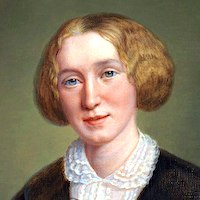
George Eliot (Mary Anne Evans)
1819 – 1880 CE
Pioneering literary outsider
Poet, journalist, translator, novelist, agnostic humanist, political agitator, and courageous follower of her own path; George Eliot wrote what some consider the best novel ever written in the English language (Middlemarch). Known for their psychological insight, her novels reflected her personal experience on the edges of the social, religious, and political fringe. Using a male pen name to escape the strong, feminine stereotypes of her era, this strategy also helped shield her from personal life scandals arising from norm-breaking situations like her adulterous relationship with philosopher George Henry Lewes and her marriage to John Cross who was 21 years younger. Her father didn't consider her beautiful enough to ever find a husband but clearly saw her high intelligence and financed a classical education for her far beyond what was normally available for women. Her father's wealth and high social status also gave her a clear perception of the extreme contrasts between the rich landowners and impoverished people living on those estates. This became a frequent theme in her books.
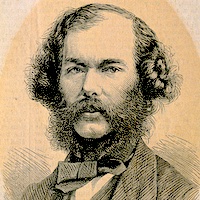
George Henry Lewes
1817 – 1878 CE
English philosopher and soul mate to George Eliot
Lewes' writings emphasized the collaborative potential between metaphysics and science and the creative freshness of his views helped evolve his era's understanding of both philosophy and psychology. His main influence though may have come anonymously through his discussions with his lover, George Eliot.

George Sand (Amantine Lucile Aurore Dupin)
1804 – 1876 CE
Intriguing, inspiring, and subversive; France's most famous 19th C. woman writer; friend to Franz Liszt, Balzac, Henry James, Browning, Dostoevsky, and Turgenev; famous lover of composer Chopin, and famous actress Marie Dorval, George Sand was a cross-dressing, cigar and hookah smoking, rebellious and scandalous dramatist and campaigner for important political reforms. Not the most likely person for this list, her creative courage and compassionate kindness make it an easy choice. As she wrote, “Know how to give without hesitation, how to lose without regret, how to acquire without meanness.”
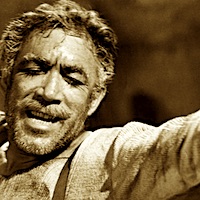
Georgios Zorbas Γεώργιoς Ζορμπάς (Alexis Zorba)
1865 – 1941 CE
"Zorba the Greek"
The Greek miner Nikos Kazantzakis befriended, admired, and used as the inspiration for his book, Zorba the Greek; Georgios Zorbas grew up as the son of a wealthy sheep farmer. He tended flocks, worked in the fields, cut wood for people, and became a miner. He eloped with his boss' daughter who had 8 children with him before tragically dying. He then decided to become a monk on Mount Athos where he met Kazantzakis and began a partnership to develop a mine together. His great-grandson, Pavlos Sidiropoulos, became a famous rock star who founded the band, Spiridoula and produced an record considered the greatest Greek rock album of all time.
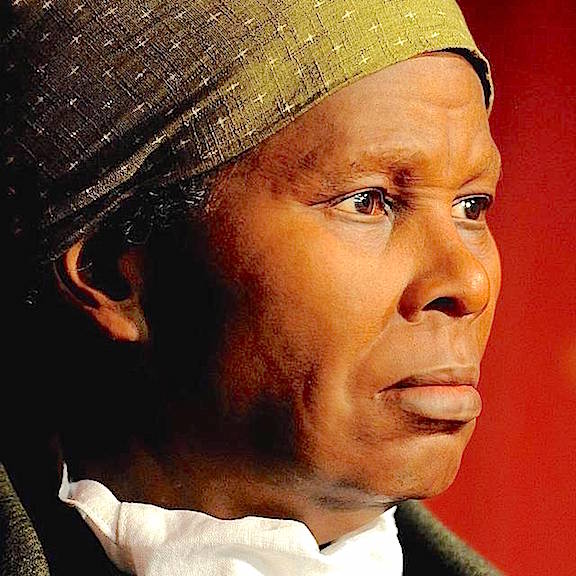
Harriet Tubman (Araminta Ross)
1822 – 1913 CE
Beaten, whipped, and escaped slave; US armed army spy, nurse and scout during the Civil War; and soon to replace on the $20 bill slave-owning Andrew Jackson who illegally broke treaties with native Americans and refused to support Supreme Court rulings in their favor; Tubman was the first woman to lead an armed war campaign (that freed 700+ slaves), used the Underground Railroad to secretly rescue over 70 slave families, found work for the newly freed slaves, and became an important part of the women's suffrage movement. A devout Christian considered by many a saint, although living in constant poverty, she never stopped her humanitarian work and is now a shining symbol for courage and freedom.
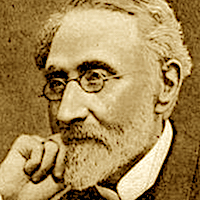
Heinrich Graetz
1817 – 1891 CE
Pioneering Jewish historian
Although Graetz became the most esteemed 19th century Jewish historian and one of the first to write a major Jewish history from a Jewish perspective, he was sued for libeling the Jewish religion and later accused of heresy. In spite of that, his history became very popular and influential. It was a ground-breaking effort and brought to the world a new interest in Jewish history. Later historians accused him of presenting a too weepy view of this history, an over-emphasis on the tragic suffering, and an ignoring of the more positive and joyful events; however, his deeply difficult and pioneering works remain.
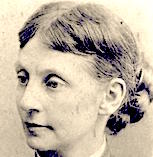
Helen Pitts Douglass
1838 – 1903 CE
Descendant of Mayflower Pilgrims, Helen Pitts Douglass was a dedicated abolitionist active in the women’s rights movement. Putting her philosophy into practice, she went against her parents, friends. neighbors and subjecting herself to both white and black scorn, married an African American, Frederick Douglass. After he died, she spent years traveling and lecturing for social justice and established the Frederick Douglass memorial now administered by the National Park Service.
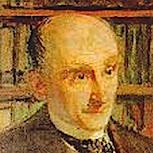
Henri-Louis Bergson
1859 – 1941 CE
The Plotinus of our era, proponent of the Lucretian tradition, awarded the 1927 Nobel prize in Literature and France’s highest honor the Grand-Croix; Bergson developed an open and nonsystematic philosophy based on mystical experience and a revolutionary concept of Multiplicity to replace dualism and Hegel’s dialectic. Close friend and collaborator with William James; Nikos Kazantzakis studied under him, his ideas on creative evolution influenced Teilhard de Chardin, and his ideas were provocative enough to be condemned by the Vatican and criticized by Bertrand Russell, Heidegger, Sartre, T.S. Eliot, Julian Huxley, Einstein, even Virginia Woolf. A Jew converted Catholic, he emphasized immediate experience and intuition over reason and science — the sense over the words.
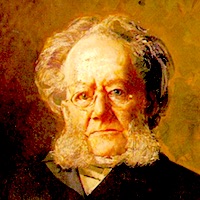
Henrik Ibsen
1828 – 1906 CE
"The world's 2nd most-performed playwright"
One of his time's most influential dramatists, Ibsen became—after Shakespeare—the world's most performed playwright. Considered a founder of theatre modernism and realism, he became on of the most influential playwrights of the 19th century. Examining the dark underside of his contemporary culture, many thought his works scandalous and they were both intensely loved and hated. The hated side forced him into poverty, self-imposed exile, and the wrath of critics. Nominated for the Nobel Prize in Literature 3 times, he became a strong influence on other influential writers like Eugene O'Neill, Oscar Wilde, Arthur Miller, James Joyce, and George Bernard Shaw. One of his plays, the 1879 A Doll’s House, became almost universally popular and was still the world's most performed play in 2006
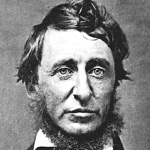
Henry David Thoreau
1817 – 1862 CE
Father of environmentalism and America's first yogi
Dedicated abolitionist, "America's first yogi," champion of nature and the natural, “father of environmentalism;” Thoreau brought a little Lao Tzu into 19th Century America. Instead of following in the pattern of his piers leading a life of “quiet desperation,” Thoreau followed much more in the Tao Te Ching’s style of Wu Wei. His non-violent approach to opposing slavery and the Mexican-American War inspired future leaders like Gandhi and Martin Luther King. Although one of America's most famous writers, during his lifetime his most famous book, Walden didn’t sell enough copies to pay for the paper it was printed on.
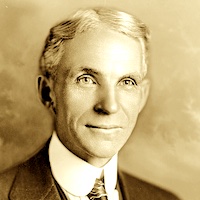
Henry Ford
1863 – 1847 CE
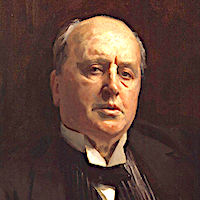
Henry James
1843 – 1916 CE
One of history’s greatest novelists, brother of William James, and 3-time Nobel Prize nominee; Henry James pioneered experimental literary techniques that deepened characters from overly simplistic caricatures to realistic depictions of ambiguity, paradox, and contradiction. Breaking from the romantic tradition of Charles Dickens, he experimented with literary styles and introduced more realism trying to involve readers more personally and influence them emotionally rather than just as distant and uninvolved observers. This attracted much criticism but also evolved literary styles to include more emphasis on psychological states of mind and the ability to inspire.
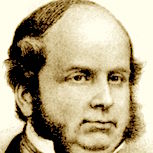
Henry Thomas Buckle
1821 – 1862 CE
“The Father of Scientific History,” son of a wealthy London merchant and shipowner, one of the world’s best chess players of his time, and winner of the first British chess tournament; Buckle was homeschooled with only one year of formal education. He loved reading, collected over 22,000 books, and taught himself eighteen foreign languages saying, “I was never much tormented with what is called education.” Though with good reason, his works were highly criticized; he pioneered an approach toward history and a scope of vision later taken up and accomplished by Will and Ariel Durant.
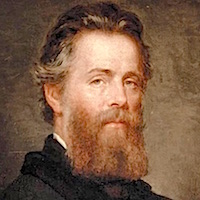
Herman Melville
1819 – 1891 CE
One of the best and most influential of all American writers but almost forgotten and unknown during the last 30 years of his life when he had to take a job as a Customs Inspector; Melville brought myth, scripture, philosophy, and mystical imagery to his haunting novels. Drawing on his adventurous ocean travels, he wrote Moby Dick which was a commercial failure and strongly criticized when first written but became a world classic described by D. H. Lawrence as "the greatest book of the sea ever written" and "one of the strangest and most wonderful books in the world.” Portraying the delicate dance between truth and illusion, the impossibility of deep and mutual communication, and the search for the absolute in the relative; his works gave a deep and powerful color to world literature.
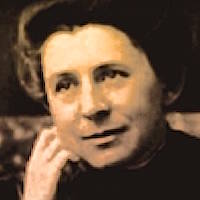
Ida Tarbell
1857 – 1944 CE
Journalist, author, teacher, and leading authority on Abraham Lincoln; Ida Tarbell invented a new kind of reporting now called investigative journalism. She developed new techniques like researching public documents scattered across the country and then, based on this research, interviewing executives, academics experts, and government regulators. With a little help from Mark Twain, she applied these new methods to an exposé on the Standard Oil Company and John D. Rockefeller who she described as viciously money-grabbing, miserly, and harming the country with his monopolizing of oil. This ushered in what’s now called the “the era of muckraking journalism,” brought down one of the world's worst tycoons, broke up the Standard Oil monopoly, and inspired a play with 686 continuous performances setting the record for any New York play.
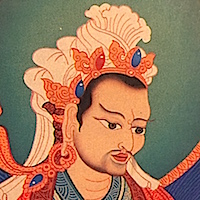
Indrabhūti ཨིནྡྲ་བྷཱུ་ཏི། ("The Enlightened Siddha-King")
892 CE –
Mahasiddha #42
Indrabhuti ཨིནྡྲ་བྷཱུ་ཏི། The Enlightened Siddha-King (late 9th century)
“The first tantrika,” archetypal tantric king, and inspiration for several tantric lineages; Indrabhuti for political reasons pledged his Buddhist sister Laksminkara in marriage to the prince of a neighboring Hindu kingdom. She went to live with the neighboring prince but soon became disillusioned with the materialism, superstition, and decadence of her new country. Late one night she fled the palace and found a cave in the mountains where she lived and practiced meditation, attained enlightenment and scandalously started teaching untouchables. This greatly upset the Hindu king but inspired Indrabhuti to do the same and leave the comfort of palace life to devote himself completely to his spiritual path. He rejected however a path that rejected sensual pleasure and sex and practiced the Guhyasamaja father-tantra in the Anuyoga Dzogchen lineage. Mahasiddha #42
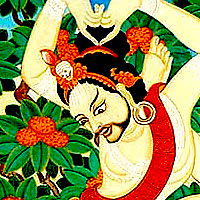
Jālandhara ཛཱ་ལནྡྷ་ར་པ། ("The Ḍākinī's Chosen One")
888 CE –
Mahasiddha #46
Jalandhara ཛཱ་ལནྡྷ་ར་པ། “The Ḍākinī's Chosen One” (late 9th century)
Another wealthy and privileged brahmin who saw through the materialistic values of his culture and renounced it to search for a more meaningful life, Jalandhara left everything to live in a cremation ground meditating. Going on to become an important mother-tantra siddha, one of the nine naths, and guru to 10 of the 84 Mahasiddhas; he founded one of the two main nath lineages (A Hindu tradition favored by Kabir that blended Shaivism, Buddhism and Yoga traditions using Hatha Yoga to transform the physical into awakened perception of “absolute reality”), taught practices that unify the male and female forces, dissolve the subject/object dichotomy, and open the non-dual doors of perception. Mahasiddha #46
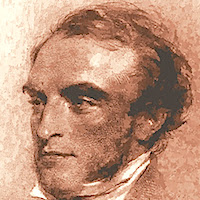
James Legge
1815 – 1897 CE
Prolific translator, editor of the first Chinese newspaper in Hong Kong, publisher of the first major volume of Chinese poetry into English, first Professor of Chinese at Oxford University, Christian missionary to China for 33 years; Legge helped translate the extensive Sacred Books of the East series, 50 volumes of Chinese classics. His purpose in this though was to provide knowledge and understanding to Christian missionaries so that they could better convert Chinese so his translations easily became corrupted by his strong sectarian point of view. In spite of these flaws, his work helped make great strides in helping “West meet East.”
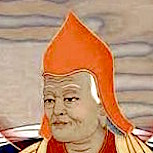
Jamgon Kongtrul the Great འཇམ་མགོན་ཀོང་སྤྲུལ་བློ་གྲོས་མཐའ་ཡས། (Jamgön Kongtrül Lodrö Thayé)
1813 – 1899 CE
Famous scholar, tertön, physician, diplomat, and co-founder of the Rimé non-sectarian, Tibetan Buddhist movement; Jamgon Kongtrul wrote more than 100 volumes of text and compiled the Five Great Treasuries. To counter the herd instinct tendency of identifying too closely with only one narrow tradition or point of view, along with Jamyang Khyentse Wangpo, he compiled the teachings of many different traditions and started the “unbiased” lineage of going to the sense, the root of realization instead of being trapped by the superficial words and identifications with narrow, sectarian, prejudiced religions, political, or cultural points of view.
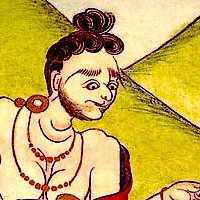
Jayānanda ཛ་ཡཱ་ནནྡ།། ("Crow Master")
11th - 12th century
Mahasiddha #58
A Tantric Buddhist master practicing in Bengal during a time when Buddhism was illegal, Jayananda was exposed by a jealous neighbor and imprisoned by the anti-Buddhist king. Before being captured though, he had befriended and fed a big flock of crows. In Tibetan culture crows are considered bad omens, capable of bringing great harm, and feared. But in a symbol of tantric transformation, Jayananda had made the crows allies. Then—metaphorically as crows or symbolically as an inclusion of the negative—the king was upended, reduced to hiding under his thrown, and as a consequence became a great and influential siddha himself. Mahasiddha #58
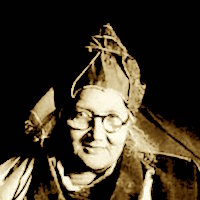
Jetsun Rinpoche, Shugsep ལོ་ཆེན་ཆོས་ཉིད་བཟང་མོ།
1852 – 1953 CE
Considered one of the most influential women in Tibetan history, personification of the great Tibetan women teachers, meditation master with more than 500 disciples; Jetsun Rinpoche when only six years old, began teaching with such insight and understanding that people were moved to tears. Radiating compassion and riding a large goat, she traveled through Tibet teaching, saving animals from slaughter with the money people gave her, and welcomed monks, nuns, laymen, women, and children. Beginning with her father who was extremely disappointed she wasn’t born a boy and later abandoned the family and continuing through her main teacher, Pema Gyatso; Jetsun Rinpoche successfully dealt with the patriarchy and sexism of her time and place.
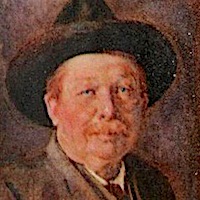
Joel Chandler Harris
1848 – 1908 CE
An outsider born out of wedlock and abandoned by his father, Harris saw the world from two points of view: from the privileged White and from the disadvantaged, under trodden but soulful Black. This led to a dual career: Joe Harris as journalist supporting racial reconciliation and North-South reconciliation as well as the Joel Chandler Harris who wrote 29 books and brought the oral African-American 'Brer Rabbit' stories and more racial respect into the mainstream culture. During the civil war, he worked for a Confederate loyalist on a plantation; but, because of his illegitimacy and red hair, felt more comfortable with the slaves and spent almost all his free time with them. His use of dialect revolutionized literature and was a major influence on Mark Twain, Kipling, A.A. Milne, Beatrix Potter, Faulkner, Ezra Pound, T.S. Eliot, and James Joyce.
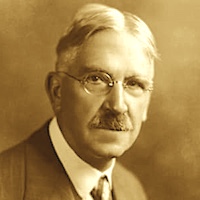
John Dewey
1859 – 1952 CE
The "Second Confucius"
American philosopher, psychologist, one of the original 34 signatories of the first Humanist Manifesto, major voice for progressive education and academic freedom; Dewey is considered the “epitome of liberalism,” “one of the fathers of functional psychology,” leading proponent of hands-on learning, and a powerful advocate for democracy. Writing 40 books and over 700 articles in 140 journals, he helped establish the NAACP, supported immigrants, and the women’s suffrage movement. He worked closely with Albert Einstein, Bertrand Russell, Karl Jaspers, Henri Bergson, Martin Buber, and George Santayana; established a college where the faculty included Buckminster Fuller, Paul Goodman, and the Beat Generation "Black Mountain Poets.” One of his students, B.R. Ambedkar, became one of the founding fathers of independent India. President of the League for Industrial Democracy, he refuted the influential Walter Lippmann views on the need to manipulate democracy by using journalism as propaganda. He lived in China during 1919-1922 giving nearly 200 lectures to thousands Chinese audiences who described him as "Second Confucius.” Returning, he gave lectures in the USA discussing the teachings of Laozi.
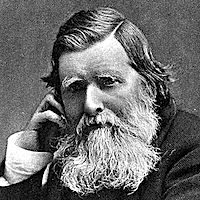
John Ruskin
1819 – 1900 CE
John Ruskin (1819 - 1900)
Strong and continuing international advocate for sustainability and protecting the environment, Christian socialist, leading Victorian era art critic, poet, philanthropist, and social thinker; Ruskin wrote over 250 manuscripts, influencing his contemporaries and many strands continuing today into modern culture. Admired by Proust, Gandhi, and Ryuzo Mikimoto in Japan; Leo Tolstoy called him, "one of the most remarkable men not only of England and of our generation, but of all countries and times.” Emphasizing the unity of nature, art, and culture; he developed principles for an ideal society which were used to set up many “Utopian Colonies.” His ideas helped found the modern Olympic Games, the British welfare state, many kind of social insurance programs, as well as the “garden city movement” that first included "greenbelts" in urban planning.

John Stuart Mill
1806 – 1873 CE
One of the most influential thinkers in history, Mill learned Greek at 3 years old, studied Euclid and Latin at 8, Plato at 10, logic and Aristotle at 12, Adam Smith and political economy at 13, chemistry and zoology at 14, and by 20 was suicidal only to be saved by the poetry and inspiration of William Wordsworth. He promoted individual freedom over state control, economic democracy over capitalism, the environment and quality of life over unlimited growth, taxing unearned income high and earned income not at all. He linked freedom with self-improvement, worked to end slavery, and was one of the first in his time to advocate equality for women.
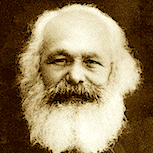
Karl Marx
1818 – 1883 CE
A journalist, philosopher, scientist, and “true founder of modern sociology” and social science; both critics and followers rate Marx as one of the most influential people in all history with a profound impact on world politics, intellectual thought, sociology and economics. A philosopher for the poor and middle classes, he described the economic conflicts of interest that alienate and polarize society between the working classes and the plutocracy. Distorted, corrupted and used by Lenin, Trotsky, Mao, and many other totalitarians; appreciated, developed, and applied by progressive political parties, labour unions, intellectuals, and artists; he brought the scientific method into politics and social theory as well as a powerful alternative to the dehumanizing aspects of capitalistic industrialization. Though questionable in many ways, his work produced a practical and powerful balancing of economic extremes, the exploitation of labor, and the corruption of politicians by the rich. Though more known for his critiques of capitalism, he also appreciated its positive impact on increased productivity, technological progress, and scientific breakthroughs.
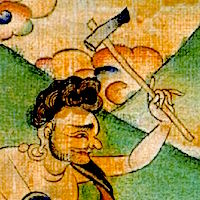
Koṭālipa ཀོ་ཊཱ་ལི་པ། ("The Peasant Guru")
1084 CE –
Mahasiddha #44
Kotalipa ཀོ་ཊཱ་ལི་པ། “The Peasant Guru” (2nd half of eleventh century)
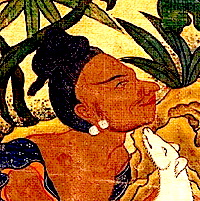
Kukkuripa ཀུ་ཀྐུ་རི་པ། ("The Dog Lover")
915 CE –
Mahasiddha #34
Kukkuripa “The Dog King” ཀུ་ཀྐུ་རི་པ། (10th century CE)
A wandering ascetic, Kukkuripa found and adopted a starving dog brought it back with him to the cave where he lived and meditated. Kukkuripa’s meditation practice took him to pleasurable, psychological god realms but memories of his dog connected him back to the real world where he saw his loyal dog sad, thin, and starving. Spurning the luxury, comfort and extravagance; he returned to the cold, dark, very uncomfortable cave out of compassion for the dog. The dog then became his teacher blending his mind-stream with the deepest insight of all the Buddhas. Naropa sent Marpa to study with him and he became one of Marpa’s most important teachers, famous for his songs of realization, and a “patron saint” for all the downtrodden and oppressed. Mahasiddha #34
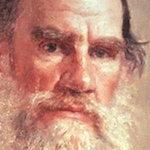
Leo Tolstoy
1828 – 1910 CE
One of the greatest authors of all time, Tolstoy’s dedication to nonviolent resistance had a deep impact on leaders like Mohandas Gandhi and Martin Luther King. His influence on education was opposed and stopped by Tsarist secret police but still became the first example of democratic education. Inspired by the Buddha, Confucius, and Chinese traditions, he was a strong Christian in a style like the early Gnostics and believed in seeing “The Kingdom of God Is Within You” rather than relying on an external church organization or priests. Excommunicated from the Russian Orthodox Church, he revived and inspired an authentic and practical Christian philosophy.

Lin Mo Niang 林默娘
970 CE –
Lin Mo Niang (silent girl) 林默娘 akaMa Zhou, Mazu, Matsu, Tian Hou (c. 970)
"Empress of Heaven,”patron of seafarers, Confucian, Taoist and Buddhist adept, rainmaker, and Fujianese shamaness from an impoverished and uneducated fishing village where no one could read; Lin Mo Niang lived during a time of mass migrations from China’s north when refugees blended their culture with her local one. Most popular today in Taiwan but banned in Mainland China, her following called Mazuism has over 1500 temples in 26 countries, and statures as high as 139’ (42.3 meters). Equated with Guan
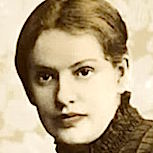
Lou Andreas-Salomé
1861 – 1937 CE
Daughter of a Russian general, icon for 20th century equality-gaining women, erotic pioneer, psychoanalyst student of Sigmund Freud, author of more than 12 books including the first published works on Friedrich Nietzsche, major influence on 19th century intellectual circles, lover and confidant of Rainer Maria Rilke, close friend and/or lover of Nietzsche who she refused to marry, philosopher Paul Rée, Leo Tolstoy, and Boris Pasternak. One of the first female psychoanalysts, in spite of being persecuted by the Nazis and her library destroyed by the Gestapo, she lived a life of intense creativity, freedom, and independence far beyond the status quo of her time.
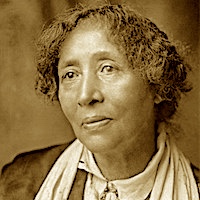
Lucy Parsons (Eldine Gonzalez)
1853 – 1942 CE
Political activist “more dangerous than a thousand rioters”
Born a slave to Native-American/African-American/Mexican-American parents; Lucy became a powerful orator, American radical activist, founder of the Industrial Workers of the World, and labor union organizer. She married a newspaper editor and former Confederate soldier—Albert Parsons—but had to quickly leave Texas because of interracial prejudice. In Chicago they became involved in the labor movement and helped organize a peaceful rally striking for an eight-hour day. An unknown person threw dynamite at police but several organizers including Albert were blamed and executed. This became a galvanizing event on the entire world’s labor movements as well as inspiring Lucy and an active life into her 80’s described by police as, “more dangerous than a thousand rioters.”

Mark Twain (Samuel Langhorne Clemens)
1835 – 1910 CE
America’s most famous author
Riverboat captain, adventurer, bankrupted businessman, inventor, and America’s most famous author; Mark Twain, with his wit, wisdom, insight, and humor influenced and continues to positively influence the world. A strong supporter of women's, religious, racial, and labor rights; he wrote scathing indictments on war, patriotic, and religious bigotry and published new work in 3 different centuries. Though disliked by his wife Livy, his book The Adventures of Huckleberry Finn ranks among history’s all time best. Ernest Hemingway said, ”All modern American literature comes from one book by Mark Twain called Huckleberry Finn.”
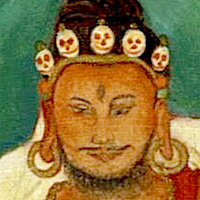
Mekopa མེ་ཀོ་པ། ("Guru Dread-Stare")
1050 CE –
Mahasiddha #43
Mekopa, མེ་ཀོ་པ། Guru Dread-Stare (11th century)
Always cheerful and kind Bengali food merchant taken as a student by a yogin customer, Mekopa saw into the vastness of his own mind, the uselessness of chasing desires, and harmfulness of action based on duality. His realization led him far beyond the limits of status quo, conventional social standards and behavior; into a lifestyle unbound by concern for people’s opinion, wandering about a cremation ground “like a wild animal” and into towns like a mad saint with dreadful, staring eyes. Mahasiddha #43
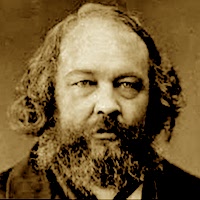
Mikhail Bakunin
1814 – 1876 CE
Romantic rebel, revolutionary anarchist, founding father of modern socialism
Revolutionary anarchist, famous ideologue, and founder of collective anarchism; Bakunin promoted anti-authoritarian Socialism which put him at bitter odds with Marx and his followers who wanted to establish authoritarian people's states. This philosophical disagreement grew into a bitter hatred, a slander campaign by Marx, Bakunin's exile and 12-year imprisonment. When his warnings about Marxist states becoming one-party dictatorships proved prophetic, his influence regained credence and his influence spread into modern times through thinkers like Noam Chomsky, Kropotkin, Herbert Marcuse, Neil Postman, and A.S. Neill becoming—in many ways—more influential than Ma
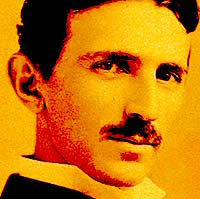
Nikola Tesla Никола Тесла
1856 – 1943 CE
Nikola Tesla, Никола Тесла (1856 – 1943)
Prototype of the “mad scientist,” engineer, futurist, poet, philosopher, linguist, humanist, close friend of Mark Twain, and son of a Serbian Orthodox priest; Tesla and his development of the induction motor helped tip the scale in the “War of Currents,” the AC vs. DC power struggle between Edison and Westinghouse. This made him instantly very rich but he soon spent everything on developing new inventions and he often lived in hotels sneaking away without paying the bills. He invented systems for wireless lighting which didn’t make money but created the foundation for wireless applications used today. He spoke 8 languages, invented radio remote control, a steam-powered oscillating generator, helped design the Niagara falls power system, took the first X-ray image, and received almost 300 patents in 26 countries.
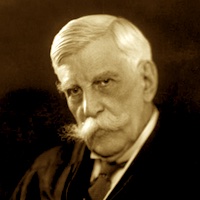
Oliver Wendell Holmes Jr.
1841 – 1935 CE
Game-changing Supreme Court Justice
One of America’s most respected and influential judges of all time, Holmes still holds the record for the oldest Supreme Court Justice. His family was close friends with Henry James Sr. and Ralph Waldo Emerson; he became close friends with William James and Henry James Jr. His often-cited, penetrating comments supported civil liberty, freedom of speech, and progressive, democratic ideals. His legal opinions formed the foundation for Roosevelt’s New Deal.
His book, The Common Law (still in print after more than 140 years), remains a source for heated debates. Opposing attitudes based on opinions about any kind of absolute truth, it describes law as an evolving process based on the changing attitudes and insights of society.
Appointed to the Supreme Court by President Theodore Roosevelt, he became one of the greatest judges but disappointed and alienated Roosevelt when he ruled against an anti-trust case particularly close to him. He approved trade unions and their ability to organize and strike, supported eugenics laws, and earned a reputation as 'The Great Dissenter.'
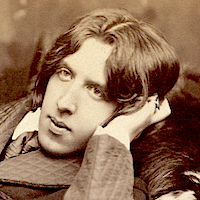
Oscar Wilde
1854 – 1900 CE
Oscar Wilde (1854 - 1900)
Prolific Irish poet, writer, journalist, and one of the most successful playwrights of his time; Wilde rebelled against his moralistic, Victorian environment with an “unequivocal inclination toward the unconventional” favoring passion and sensual pleasure. Strongly influenced by his teacher, John Ruskin, he transformed his more hedonistic tendencies into deep social concerns and wrote against decadence, duplicity, and libel. Married and with two sons, his writings went against popular opinion by describing women as creative and intelligent. His liaisons with men however led to a trial for homosexuality, incarceration, a severe injury in prison after collapsing from illness and hunger, and later death in extreme poverty. In many ways, his life seems to have exemplified his famous aphorism, “No good deed goes unpunished.”

Paul Carus
1852 – 1919 CE
The Teachings of Lao Tzu
Self-described as “an atheist who loved God,” Paul Carus was one of the first Americans with a serious interest in Buddhism. He saw Taoism and Buddhism as complementary and published 75 books and 1500 articles on social issues, history, science, religion, politics, logic, anthropology and mathematics. He worked closely with D. T. Suzuki and corresponded with thought-leaders of his time like Tolstoy Thomas Edison, Nikola Tesla, and Booker T. Washington. He defined his philosophy as, “everything is fraught with life; it contains life; it has the ability to live” and promoted a “Religion of Science,” interfaith dialog, and a “cosmic religion of universal truth.”
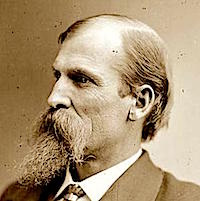
Powell Clayton
1833 – 1914 CE
Powell Clayton (1833-1914)
Politician and diplomat, US senator, governor, ambassador to Mexico, Civil War general, and Radical Republican; Clayton fought against the Ku Klux Klan, worked to establish free public schools in Arkansas for the first time, and for his efforts was impeached.
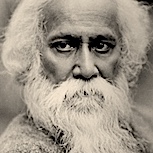
Rabindranath Tagore
1861 – 1941 CE
Author, painter, “the greatest poet India has produced,” and song writer of over 2000 songs including the national anthems for India, Bangladesh, and Sri Lanka; Tagore was the first non-European to win the Nobel Prize in Literature. A universal internationalist, he was strongly against nationalism and introduced Indian culture to the West as well as Western culture to India. A close friend of Gandhi, he renounced his British knighthood and gave voice to the deeper wisdom within all strata of society: rich and poor, powerful and humble.
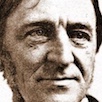
Ralph Waldo Emerson
1803 – 1882 CE
Champion of individualism
Friend and mentor to Henry David Thoreau and godfather to William James, Emerson championed individualism as a counterbalance to society’s conformist pressures. He wrote what Oliver Wendell Holmes considered America's “Intellectual Declaration of Independence” and he summarized his philosophy as “the infinitude of the private man.” The most influential writer of 19th-century America, he was called “the Concord Sage” and became the leading voice of intellectual culture in the United States influencing American religions to become more gnostic, less fundamentalist and conservative.
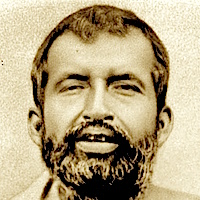
Ramakrishna
1836 – 1886 CE
Ramakrishna Paramahamsa (Bengali: রামকৃষ্ণ পরমহংস (1836 – 1886)
Indian mystic, yogi, inspiration for the 19th–20th century Bengali Renaissance; Ramakrishna became a strong revitalizing influence on Indian culture. His "social service gospel,” disciples like Vivekananda, and organizations do major philanthropic work in education, health care, disaster relief, rural management, and in eliminating tribal welfare. Steeped in Hindu philosophy and practices, he also initiated into and practiced Islam and did the same with Christianity teaching ‘All religions as true.’ His impact on thought leaders extended from names like Gandhi and Nehru to westerner ones like Tolstoy, Dvorak, and Philip Glass.

Robert Louis Stevenson
1850 – 1894 CE
Humanist, social and political critic, poet, composer of over 120 complex musical works, 26th most translated author in the world; Stevenson grew up in a religious family of engineers frail, sickly, and alienated. His father once said, "You have rendered my whole life a failure.” Fiercely criticized by Virginia Woolf and early literary critics but praised by Borges, Proust, Arthur Conan Doyle, Hemingway, Kipling, Jack London, and Chesterton; he now ranks alongside Henry James and Joseph Conrad. In spite of physical frailty, he traveled widely and supported his writing with hard labor and a frugal lifestyle often surviving long periods living on less than 40¢/day. He saw himself, his time, and culture with a rare self-clarity that cut to the deep basic goodness manifesting in his unforgettable characters.
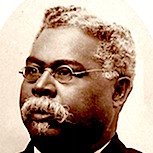
Robert Smalls
1839 – 1915 CE
In a dramatic escape from slavery, Smalls commandeered a Confederate steamer during the Civil War, disguised himself in the captain’s coat, picked up the families of his fellow slave sailors, and made a mad dash for a Union blockade where they were welcomed as heroes. He later helped recruit over 5000 blacks to help in the North’s war effort, served as a captain in the US Navy. After the war he returned to South Carolina, bought his former master’s house, served in the US House of Representatives, founded the Republican Party of South Carolina, and authored the state legislation that gave his state the first US free and compulsory public school system.
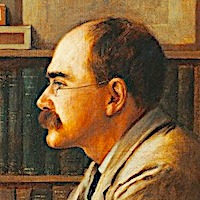
Rudyard Kipling
1865 – 1936 CE
Greatest—in-English—short-story writer
Journalist, poet, novelist, major short story writing innovator, youngest and first Englishman to receive the Nobel Prize in Literature; Kipling was born in India and quickly became one of the most popular prose and verse writers of his era. Accused by critics of racism, misogyny, and imperialism; George Orwell believed that Kipling sold his soul to the British, colonial establishment and he did support a military figure responsible for a massacre. A contemporary Indian writer said he had a much better understanding of animals than of the Indian people he wrote about. However, his fame endures, his children’s books remain popular classics, his poetry is still being recorded, his adult fiction is still in print, and his deep influence on Scouting movements continues.
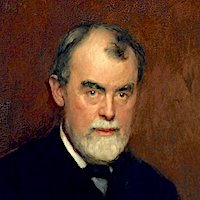
Samuel Butler
1835 – 1902 CE
Iconoclastic philosopher, artist, composer, author, and evolutionary theorist
Friend and student of Charles Darwin, serio-comic satirist, champion of small-is-beautiful everyday experience; Butler composed Handelian-style cantatas and piano pieces, painted works of art hung in London museums, and translated the Iliad and the Odyssey that he believed were written by a Trojan and by a Sicilian woman. In his book Erewhon, crime is considered a disease while disease and physical imperfections are considered crimes. Aldous Huxley thought Butler's ideas transformed Western culture's attitudes toward crime, technology, and 'progress'.
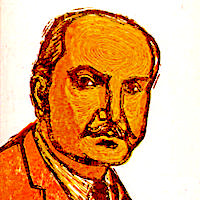
Santayana, George (Jorge Agustín Nicolás Ruiz de Santayana y Borrás)
1863 – 1952 CE
Powerfully influential, true-to-himself philosopher/poet
Poet first, philosopher second, novelist, Harvard dropped-out professor, Christian-atheist, free-thinking cultural critic; Santayana mixed his poetic genius with deep, philosophic insights; beauty with truth. Born in Spain, he brought an old European flavor and aristocratic appreciation to his new but temporary American homeland saturated with the idealism and individualism of Emerson and Thoreau. Many of his aphorisms have progressed from words of wisdom to cliché to truism. ("Those who cannot remember the past are condemned to repeat it") Professor to students like T. S. Eliot, Robert Frost, Gertrude Stein, Walter Lippmann, W. E. B. Du Bois, Conrad Aiken, and Supreme Court Justice Felix Frankfurter; major influence on thought-leaders like Bertrand Russell and Alfred North Whitehead; Santayana’s influence on awakened evolution continues
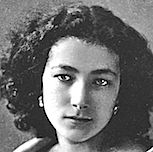
Sarah Bernhardt
1844 – 1923 CE
“One of the finest actors of all time”
“The most famous actress the world has ever known", “one of the finest actors of all time,” “first international entertainment icon,” and “notorious liar;” Sarah Bernhard acted and sang for over 60 years starring in many of the earliest films ever made. Admired by everyone from Sigmund Freud to Mark Twain to Czar Alexander III, her mother was a prostitute and Sarah forged a birth certificate to claim French citizenship. Expelled from her first acting school for slapping a fellow actress, Sarah became mistress to a Belgian prince, to a famous courtesan, and slept in a coffin to better understand tragedy. During a war she converted her theatre into a hospital and took care of wounded soldiers.
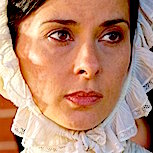
Sarah Grimke
1792 – 1873 CE
Going against her SC Supreme Court chief Justice father who held hundreds of slaves and opposed women’s rights, Sarah supported Abraham Lincoln and her writings fueled and inspired the beginning of the women’s suffrage movement. When she was 5 years old after watching a slave whipping, she tried to leave her state and find a place without slavery. Breaking the law, she taught a slave to read, taught slaves Bible lessons, and against the culture secretly advanced here own "unwomanly” education. One of the first women public speakers in America and under constant criticism and attack, she wrote the first serious essay advocating equality for women and became the first American woman working to end slavery.
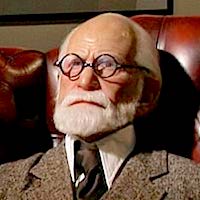
Sigmund Freud
1856 – 1939 CE
Dismissed and laughed at because of his more outlandish theories, it’s too easy to overlook Freud’s many deep insights. Founder of psychoanalysis and inspiration/influence for many of the important psychologists who came after him including Jung, Adler, Erich Fromm, Wilhelm Reich, and Fritz Perls; he developed many techniques and understandings for treating mental illness—ideas like free association, transference, the Oedipus complex, repression, libido, a theory of the unconscious, and an id-ego-super-ego psychic structure. Fromm—though critical in many ways—described Freud (along with Marx, and Einstein) as an "architect of the modern age,” believed he permanently changed the way we understand human nature, but thought psychoanalysis quickly became corrupted. Although such a famous name today, during his lifetime Freud shared some of the obscurity common to most history-changing people. His influential book, The Interpretation of Dreams (1900) only sold 351 copies during the first 6 years after publication.
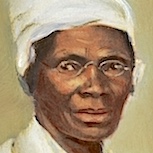
Sojourner Truth (Isabella (“Bell”) Baumfree)
1797 – 1883 CE
Born into slavery and now listed in the “100 Most Significant Americans of All Time,” Sojourner escaped with her infant daughter, went to court trying to get her son back and became the first black woman to win a case like this. She traveled extensively promoting the abolition of slavery, helped recruit black troops during the Civil War and tried to get land grants for freed slaves after the war. A powerful women's rights activist and friend of Susan B. Anthony, she gave one of the most famous speeches on women's rights and is considered a saint by both the Episcopal and Lutheran churches.
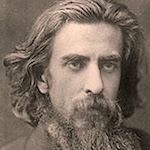
Solovyov
1852 – 1900 CE
Model for Dostoyevsky's characters Alyosha and Ivan in The Brothers Karamazov, major philosophical inspiration for numerous writers from Leo Tolstoy to Rudolf Steiner, Solovyov blended Hellenistic, Buddhist, Kabbalistic, early Christian and Gnostic traditions into a philosophy of Sophia as the merciful unifying feminine wisdom of God evolving consciousness and religion. This philosophy tried to reconcile all bodies of knowledge and understanding in a common ground of absolute unity reconciling all opposites, contradictory ideas, traditions and peoples. Called by the press either a Protestant, Jew, Catholic, rationalist, mystic, or nihilist; he defied categories including place and stable career spending most of his life wandering without a home.
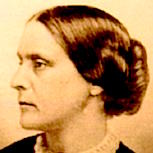
Susan B. Anthony
1820 – 1906 CE
Harshly ridiculed, accused of trying to destroy marriage and the family, arrested for voting; Susan B. Anthony started working to end slavery as a teenager and later ran the largest petition drive against it. Giving up to 100 speeches a year, she organized and campaigned for equal rights leading to the Nineteenth Amendment (popularly called the “Susan B. Anthony Amendment”) giving women the right to vote in 1920. The first woman to be on a U.S. coin, she gave "the most famous speech for woman suffrage,” and her efforts led to legal rights for married women, women being able to attend colleges, and a fundamental, cultural attitude change.
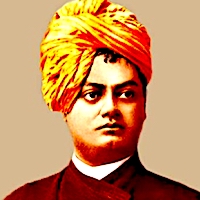
Swami Vivekananda ʃami bibekanɔnd̪o
1863 – 1902 CE
"The maker of modern India"
Patriotic saint and “maker of modern India,” main Ramakrishna disciple, introducer of Vedanta and Yoga into the Western world, important influence on the revival of Hinduism, and force for nationalism in colonial India; Vivekananda taught that all beings are part of a divine self and so serving mankind is the same as serving god. Teaching that all religions and sects within Hinduism are only different paths to the same goal, he saved Hinduism from the irrelevancy of only following antiquated traditions. Gandhi praised him for “cutting down the dead wood of tradition,” Rajaji crediting him for “saving Hinduism,” and Sri Aurobindo said that he “awakened India spiritually.” An inspiration for Aldous Huxley, Nikola Tesla, and Christopher Isherwood; he motivated the establishment of Indian science institutes and universities.

Théodore Faullain de Banville
1823 – 1891 CE
French poet, writer, and major influence on the Symbolist movement.
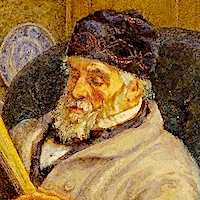
Thomas Carlyle
1795 – 1881 CE
"Great Man” theory of history creator
Historian, philosopher, translator, mathematician, and one of his era’s most influential social commentators; Carlyle developed the “Great Man” theory of history. He postulated and described how the world’s great changes were all caused by the decisions and actions of a very small and elite group of prime movers. He emphasized the essence of heroism as a response to intense challenge and difficulty rather than inherent qualities. In later life, these ego-based theories unfortunately led to a critique of democracy, justifications for fascism, nostalgia for slavery, and support for repressive government. His work in mathematics led to innovative methods still used today and one of his books on the French Revolution inspired Dickens' novel, A Tale of Two Cities.
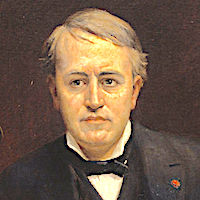
Thomas Edison
1847 – 1931 CE
America's greatest inventor
“America's greatest inventor,” businessman, and entrepreneur; Edison set up the world’s first industrial research laboratory, first film studio, and held in his name over 1,100 US and foreign patents in many fields including electric power, communications, and motion pictures (his film studio made almost 1,200 films.). Some of his most influential inventions include the light bulb, phonograph, motion picture camera, the fluoroscope, the tasimeter, and the nickel-iron-battery. Henry Ford was a neighbor and employee who Edison helped with his business ventures. A victim of nepotistic seductions, Edison had to take his son to court for using their family name to promote scams, snake-oil products, and fraudulent ventures. He joined Blavatsky’s Theosophical Society, became a strict vegetarian, and promoted nonviolence.
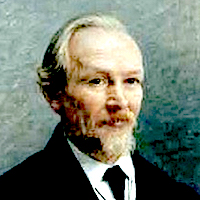
Vasily Vasilievich Rozanov Васи́лий Васи́льевич Рóзанов
1856 – 1919 CE
One of the most controversial Russian writers and philosophers, Dostoyevsky's "Underground Man,” and master of paradox; Rozanov blended criticizing the Russian church to fervent praise, from glorifying Judaism to anti-Semitism, from accepting the naturalness of homosexuality and sex in general to condemning homosexuals and accepting anti-sex Christian views. His open-minded and controversial free thought put him at odds with both the conservative Tsarist government as well as radicals like Lenin. His writings were suppressed and he died by starvation in a monastery shortly after the Russian revolution. He believed politics is obsolete and that "God doesn't want politics any more.” Little know outside Russia and only recently there, he was a deep influence and inspiration for many Russian intellectuals, writers, and philosophers and is now becoming popular with some western scholars.
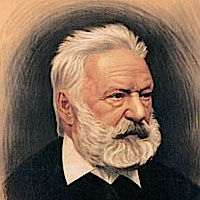
Victor Hugo
1802 – 1885 CE
Literary pioneer, poet, and social justice provocateur
Romantic literature pioneer, poet, artist, and one of the greatest French writers; Victor Hugo’s work influenced most of the social and political issues of his time. His literary success opened doors into the political world and he became more and more involved in politics. He campaigned against capital punishment and social injustice, for more freedom of the press, free education for children, universal voting rights, and a “United States of Europe.” While his books helped create important cultural and social shifts, his political efforts led to exile, a condemnation from Napoleon III, and death threats from mobs outside his house. His political work on ending the death penalty, however, did lead to its abolition in Geneva, Portugal, and Colombia. Two plus million people walked in his funeral procession and today almost all French cities have named streets after him.
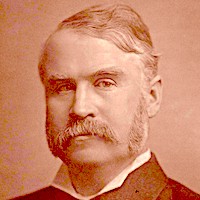
W. S. Gilbert
1836 – 1911 CE
Innovative, influential, inspiring dramatist
Poet, illustrator, and dramatist; Gilbert wrote 14 comic operas with music written by Sir Arthur Sullivan and over 75 plays—many still being performed c. 150 years after they were written. Ridiculing party politics, nepotism, patriotism, and the British class system; they may have not gone out of style because they were never in any kind of conventional style to start. The innovative creativity in their performances came in part from their ability to finance the productions themselves rather than having to rely on conventional funding that required artistic restraints and conformance to traditional methods. Gruff and quick-tempered on the outside, warm and a loyal friend when close, Gilbert set new styles and became an important influence on most playwrights that came after him especially in the line of Oscar Wilde and George Bernard Shaw.
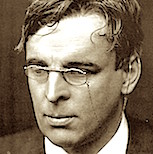
W.B. (William Butler) Yeats
1865 – 1939 CE
Symbolist poet, Irish Senator, and icon of 20th-century literature; Yeats won the Nobel Prize for literature in 1923 which enabled him for the first time to pay off his and his father’s debts. Though dabbling in the occult and automatic writing in his youth, he became a standard-bearer for Irish cultural independence and nationalism. Challenging the Irish Catholic political dominance, he championed divorce rights and confronted religious leaders but later supported aristocratic over democratic rule. Called by Ezra Pound "the only poet worthy of serious study,” his personal evolution of Hindu-based spiritualism helped inspire some of the "most potent images in twentieth-century poetry.”
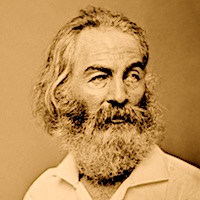
Walt Whitman
1819 – 1892 CE
Premier "poet of democracy" and model for Dracula
“Father of free verse,” one of the most influential American poets, humanist, journalist, Civil War volunteer nurse; Whitman blended realism and transcendentalism and became known as the first "poet of democracy.” His most famous work, Leaves of Grass, was called everything from "trashy, profane & obscene, the author a pretentious ass" to a work more central to American culture than Melville's Moby-Dick, Twain's Huckleberry Finn, and Emerson's The Conduct of Life. Vociferously criticized for being obscene with sexuality themes, it was admired by Thoreau, Ralph Waldo Emerson, Amos Bronson Alcott, and Oscar Wilde. Though biographers assert that Whitman was gay, he always denied it and claimed to have 6 illegitimate children. In a contrast between his poetry and personal views, he promoted equality and true democracy in the former, status quo views of nationalism and racism in the latter. His poetic and vagabond lifestyle inspired the Beat movement, Allen Ginsberg, Jack Kerouac, Gary Snyder, Lawrence Ferlinghetti, Bob Dylan, and Bram Stoker who used him as the model for his character, Dracula.
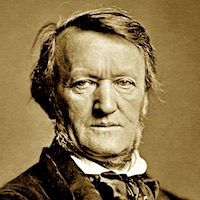
Wilhelm Richard Wagner
1813 – 1883 CE
"Music-drama" composer, revolutionary of opera, prolific writer, and forefather of psychoanalysis; Wagner blended with his music a flare for the poetic, philosophical, visual, and dramatic arts. Although famous and greatly respected, most his personal life filled with poverty, political exile, and dramatically painful love affairs. His research and insight into psychoanalytical themes like dream interpretation, the Oedipus myth, and the relationship between anxiety and sex predated Freud's birth. He became a major influence on luminaries like W. H. Auden, Thomas Mann, Marcel Proust, James Joyce, and T. S. Eliot.
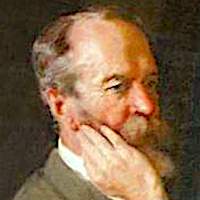
William James
1842 – 1910 CE
"Father of American psychology”
"Father of American psychology,” and one of the most significant American philosophers; William James established the philosophical school called pragmatism, functional psychology, and radical empiricism. His wealthy father wanted William and his brother Henry to be educated in a way free from dogma and goal-oriented career study. This led William into the fields of chemistry, physiology, anatomy, a medical degree, and a Harvard professorship where he set up the first American experimental psychology laboratory and became the first to offer a U. S. psychology course. Suffering through severe mental depression and serious health issues, he turned to philosophy and an evolved understanding of the self as a spiritual essence, a continual stream of consciousness much deeper and more meaningful than our material and social identifications.
Quotes (6 Quotes)
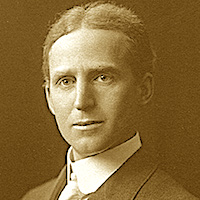
“[The Civil War was really a] social cataclysm in which the capitalists, laborers, and farmers of the North and West drove from power in the national government, the planting aristocracy of the South.”
Comments: Click to comment
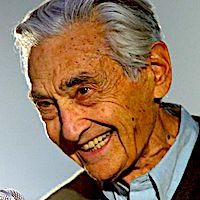
“The Civil War was one of the bloodiest in human history up to that time: 600,000 dead on both sides, in a population of 30 million—the equivalent, in the US of 1978, with a population of 250 million, of 5 million dead.”
Comments: Click to comment

“No man in Tennessee has done more than Andrew Johnson to create, to perpetuate and embitter in the minds of the Southern people, that feeling of jealousy and hostility against the free States, which has at length culminated in rebellion and civil war. Up to 1860, he had been for 20 years among the most bigoted and intolerant of the advocates of slavery and Southernism.
”
Comments: Click to comment
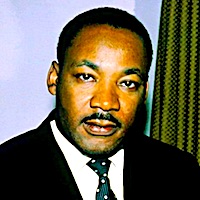
“No President can be great, or even fit for office, if he attempts to accommodate to injustice to maintain his political balance... it was this same attitude that made it possible for Lincoln to speak a kind word about the South during the Civil War when feeling was most bitter. Asked by a shocked bystander how he could do this, Lincoln said, 'Madam, do I not destroy my enemies when I make them my friends?' This is the power of redemptive love.”
Comments: Click to comment
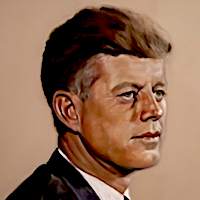
“What would Lincoln have been without the Civil War? Just another railroad lawyer!”
Comments: Click to comment
Western Eras
Agricultural Revolution (10500 – 4000 BCE)
Sumerian (Mesopotamia) Civilization (4400 – 3100 BCE)
Egyptian Civilization (3150 – 305 BCE)
Babylonian Civilization (1895 – 619 BCE)
The Axial Age, “The Great Leap of Being” (800 – 200 BCE)
Greek Civilization (480 – 146 BCE)
Roman Civilization (100 BCE – 395 CE)
Early Middle Ages (566 – 1095 CE)
High Middle Ages (1095 – 1304 CE)
The Age of Reason: The Enlightenment (1620 – 1800 CE)
Post-Romantic Age (1850 – 2018 CE)
American Civil War (1861 – 1865 CE)
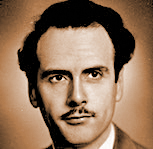
Comments (0)